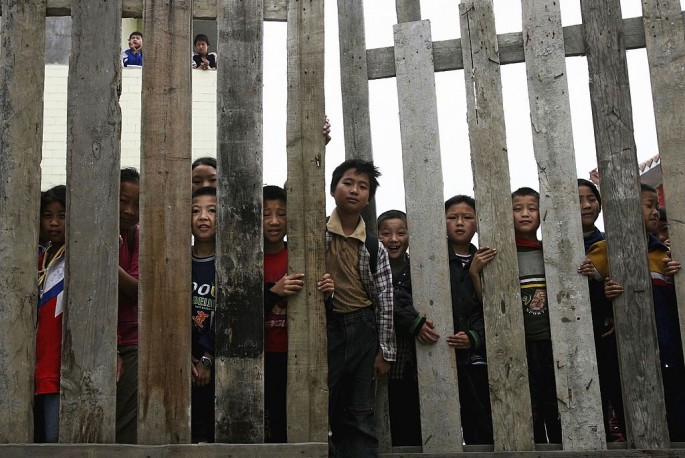Experts believe that grown-up children who were left behind by their parents are more likely to end up behind bars, reported the Global Times.
Zhang Dandan, an assistant professor at the National School of Development of Peking University, decided to dedicate two years of his life to interview left-behind children who have been jailed.
According to Zhang, prisoners who were once left-behind children often exhibit emotional instability, violent tendencies, and a feeling that they are being treated unfairly. Zhang links traumatic childhood experiences behind these behavior.
What's worse, said Zhang, is that it's a cycle--left-behind children who were jailed went on to have children, who end up being left-behind as well.
"The number of migrant workers in prison who were once left-behind children is about 20 percent higher than the number of non-left-behind migrant workers in prison," said Zhang in an interview with Phoenix Weekly magazine.
Although the government has funneled funds to help left-behind children get back on their feet by providing educational assistance, experts agree that psychological problems must be addressed first if one seeks to help their well-being and future.
"Now the government's and society's support for left-behind children is concentrated in offering them financial support, like buying schoolbags for them," said Liu Xinyu, founder of On the Road to School. "However, this is the wrong direction. The psychological problems those children have is the more urgent problem." The organization helps left-behind children by providing financial and psychological help.
"They are literally orphans in soul. They are unable to get emotional nourishment from their parents," added Liu.
According to data gathered by the All-China Women's Federation, there are currently 61 million children in the country with at least one parent working away from home. Meanwhile, 30 million children are found out to have no parent at home at all.
In their own survey, Liu and his organization found out that nearly 10 million children hardly see their parents during the year, with 2.6 million children barely having any contact with their parents, let alone one single annual phone call.



























